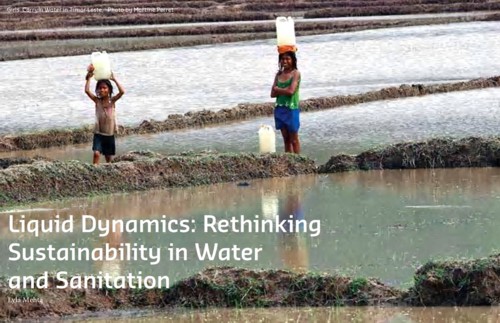/sub-categories/research-papers
Research Papers
Climate: Observations, projections and impacts - India - A report by the Met Office (UK)
Posted on 15 Feb, 2012 03:25 PMThis was done as a part of a project that aimed at compiling scientifically robust and impartial information on the physical impacts of climate change for more than 20 countries.
Adaptation to climate change with a focus on rural areas and India - A document by GTZ (India)
Posted on 15 Feb, 2012 01:59 PMIt aims to strengthen the capacities of rural communities in India to live with climate variability and change. The work includes supporting governments of four partner states of Rajasthan, Tamil Nadu, Madhya Pradesh and West Bengal, local communities and other relevant stakeholders in identifying, developing and carrying out adaptation measures in pilot regions.
Stress of urban pollution on largest natural wetland ecosystem in East Kolkata - Causes, consequences and improvement
Posted on 14 Feb, 2012 10:23 AMThe impact of sewage pollution on these fish ponds and on the ecosystem is evaluated. Similarly, remedial measures to maintain water quality and to improve resource recovery efficiency are suggested.
Marine fisheries in India - Issues, opportunities and transition for sustainable development - A World Bank working paper
Posted on 14 Feb, 2012 10:03 AMThis working paper by the World Bank presents the findings of a study that was conducted as a collaborative initiative by the World Bank and the Department of Animal Husbandry, Dairyin
Governing the urban poor - Riverfront development, slum resettlement and the politics of inclusion in Ahmedabad - A paper published in EPW
Posted on 08 Feb, 2012 11:58 AMSabarmati Riverfront Development (SRD) project, an urban mega-project in Ahmedabad has been proclaimed as a case based on “flexible governing” of the residents of the riverfront informal settlements.
Nutrient-based fertiliser subsidy: Will farmers adopt agricultural best management practices? An article in EPW
Posted on 06 Feb, 2012 11:58 AMIt offers prospective benefits from the agro-environmental management point of view.
Towards good sense on Mullaperiyar - EPW - January (2007)
Posted on 06 Feb, 2012 07:59 AMIt makes some suggestions on the way in which it may be useful to proceed. The article argues that a new case has now been added to the existing list of river-water disputes and that the issue has turned very crucial as feelings are running high on the Mullapperiyar issue in both Tamil Nadu and Kerala, and that there is a risk that the dispute might become intractable. The article warns that wisdom is needed to avoid a serious deterioration of the relations between the two states.
Global change, wastewater and health in fast growing economies - Paper published in the journal Current Opinion in Environmental Sustainability
Posted on 02 Feb, 2012 11:35 AMIt argues that among the water challenges in the 21st century, the water quality health nexus is one of the most serious challenges that will need to be addressed at an urgent level.The paper directs attention at the rapid and unequal growth and development patterns emerging in developing economies and the impact of this development on the environment and human populations. The paper directs attention to the negative impact of this development on one of the important natural resources such as water and the linkages between water quality and public health of populations.
Liquid Dynamics: Rethinking sustainability in water and sanitation
Posted on 20 Jan, 2012 06:55 PMThis paper begins with the slow rate of progress in achieving the millennium development goals of environmental sustainability, especially in the areas of water and sanitation. This is due to the disconnect between the global rhetoric (which often focuses on water as an economic good) and social realities (such as the cultural attitudes towards water)

Looking beyond Durban:Where to from here - An article in EPW
Posted on 20 Jan, 2012 03:58 PMThe Durban climate negotiations have set into motion new negotiations, with the possibility of re-opening old and contentious issues, while at the same time leaving the global climate regulatory framework unchanged. While disappointing, this does create a possibility of starting anew.